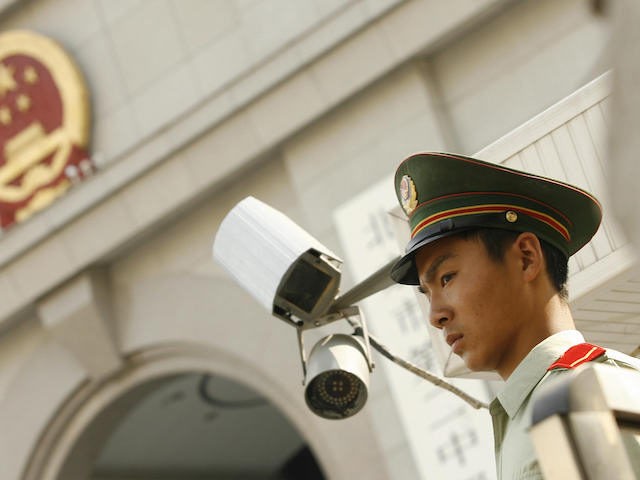The Chinese government announced a new “anti-espionage” regulation on Monday requiring Chinese companies and organizations “susceptible to foreign infiltration” to adopt new security measures.
China’s Ministry of State Security issued the anti-spying edict on April 26. The order obligates various bodies in China, including “social groups, enterprises, and public institutions,” to operate as if they are sensitive government entities and train their employees to detect and ward off foreign attempts at espionage.
China’s national security authority will designate certain entities as vulnerable to foreign espionage “based on the level of confidentiality that the industry involves, the degree of foreign involvement, and whether there have been previous incidents that endangered national security,” according to the Chinese state-run Global Times.
The bureau will then require the designated companies to arrange for prospective employees to “sign letters of commitment before taking up posts.” The companies must also require staff to report any activity related to national security to their superiors, provide anti-espionage education to personnel ahead of their departures for posts abroad, and de-brief staff after their return to China.
Employees of the designated companies who plan to take up posts abroad must first complete “pre-departure anti-spying education through means of seminars and short movies, where cases of foreign intelligence work are shown,” according to the Global Times.
The newspaper interviewed “a staff member in charge of foreign affairs at the headquarters of a central state-owned enterprise in Beijing, who requested anonymity” on Monday who alleged his unnamed company “has required staff involved in sensitive fields or those holding important [digital] files to leave their electrical devices at home and bring new ones abroad.
The man alleged:
Staff going on business trips to foreign countries, such as countries of the Five Eyes alliance – the US, UK, Australia, Canada, and New Zealand – have been told to strictly report their travel destinations, agendas, and meetings with foreign personnel, and they must get approval from their direct superiors before the applications are reviewed by the headquarters.
According to the regulation:
[Chinese] national security organs can issue written guidance [to designated companies] by providing work manuals, guides, and other publicity and education materials, and hold work training, holding work meetings, reminding, advising and other methods to carry out anti-espionage safety protection work guidance [sic].
The edict also allows Chinese national security authorities “access to buildings, internal materials, electronical media kits, facilities, or computers and information systems of the companies involved [sic],” the Global Times reported. “Those companies or organs that fail to implement their responsibilities, which results in negative outcomes, will face punishments accordingly.”
“Overseas espionage and intelligence agencies and hostile forces have intensified infiltration into China, and broadened their tactics of stealing secrets in various ways and in more fields, which poses a serious threat to China’s national security and interests,” an unnamed senior official with China’s Ministry of State Security told China’s state-run press agency, Xinhua, on April 26.
“The [new] regulations [announced Monday] are formulated to ensure specific duties of various authorities and entities in preventing espionage activities are performed and to enhance the capacity of society, especially core areas, in ensuring state security,” the official said.

COMMENTS
Please let us know if you're having issues with commenting.